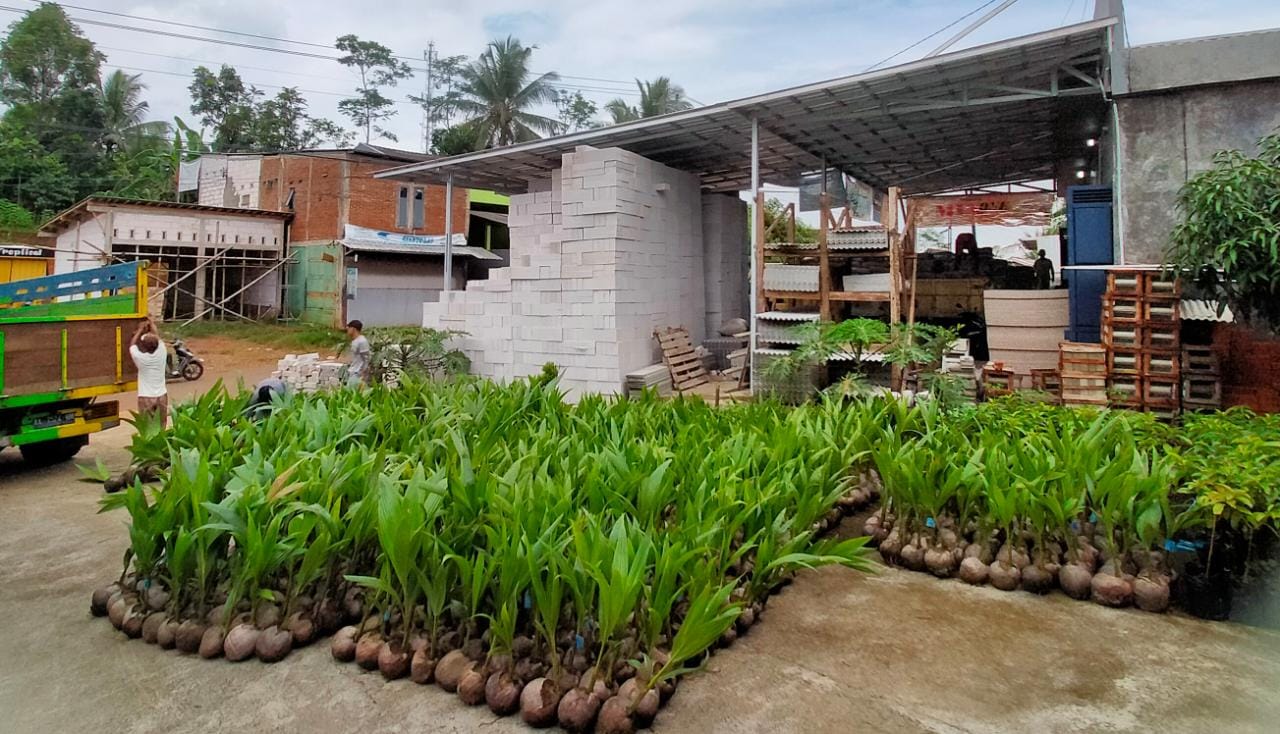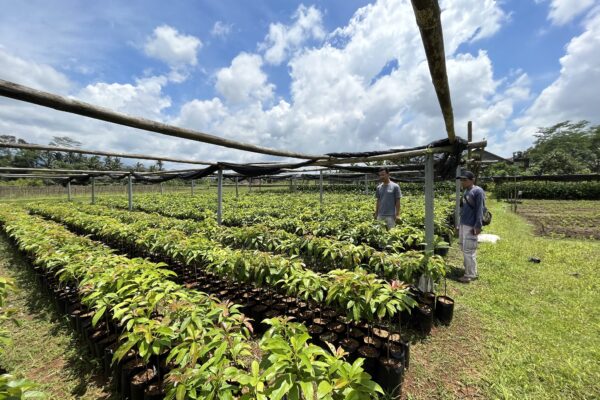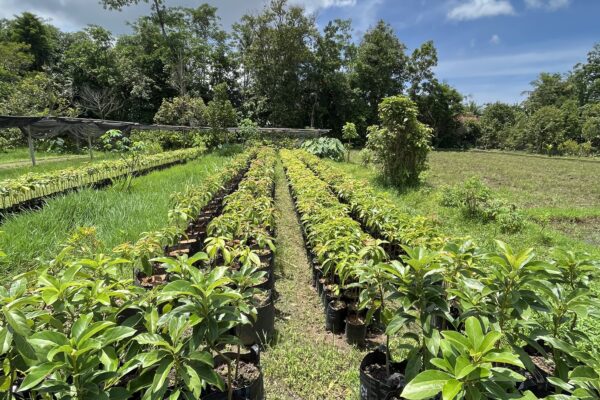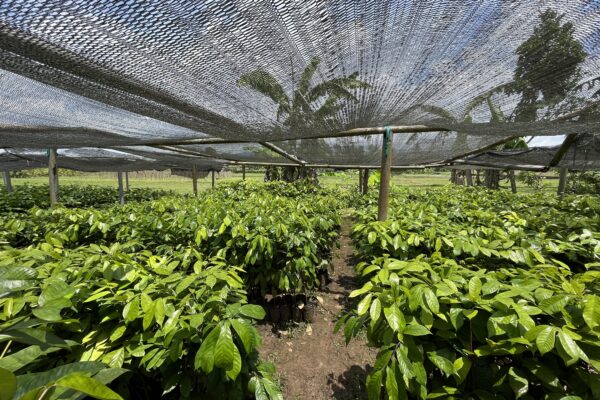Indonesia holds the title of being the largest exporter of coconut sugar globally. Within the Fairtrade system, Indonesia takes the lead as the primary exporter of coconut sugar. Approximately 5,000 smallholder coconut sugar farmers are affiliated with these seven Fairtrade Small Producer Organizations (SPOs). However, smallholder coconut sugar farmers have faced challenges in enhancing productivity and improving quality due to the impact of a changing climate. Changing weather patterns have been observed across various regions involved in coconut sugar production. In addition to climate change-related challenges, the coconut sugar sector in Indonesia also confronts a significant hurdle in terms of farmer regeneration. The primary factor discouraging younger generations from continuing this tradition is the risk associated with climbing coconut trees and their considerable height, which increases the likelihood of accidents.
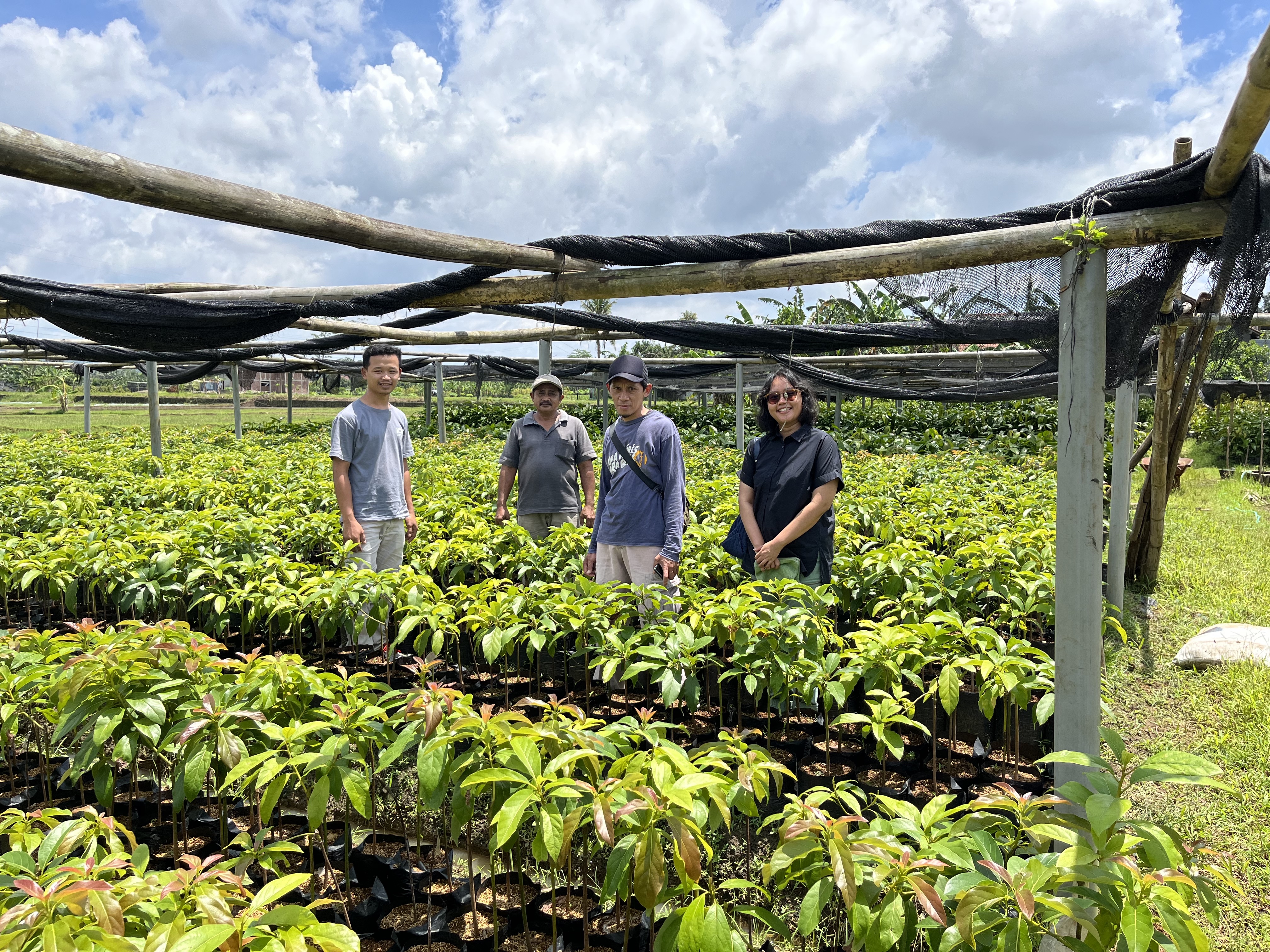
To tackle these challenges, Fairtrade NAPP Indonesia through the implementation of the Fairtrade Germany bilateral fund collaborated with a coconut sugar SPO, Koperasi Nira Kamukten on phase 1 of “The development of Kelapa Genjah Entog Kebumen demonstration plots and the plant diversification in the production-farming lands” as part of Building Climate Resilience and Production Sustainability of Coconut Sugar Producers in Indonesia. This initiative aimed to develop demonstration plots of a specific coconut plant variant called Kelapa Genjah Entog Kebumen. This variant belongs to the short-type group of coconut plants and has been authorized for cultivation and reproduction in the Kebumen Regency. Additionally, it has been recognized by the Indonesia Ministry of Agriculture as a superior variant at the national level for short-type coconut plants. This initiative has benefited 305 members and their families.
This initiative encompasses a range of exciting activities and objectives to bring about positive transformations in the coconut sugar industry. The endeavours and goals of this initiative are as follows:
- 200 Kelapa Genjah Entog Kebumen seedlings have been cultivated at 4 demonstration plots. Furthermore, 800 Kelapa Genjah Entog Kebumen seedlings at the farms of the 305 members have been cultivated.
The purpose of the demonstration plot is to conduct an experiment involving the cultivation of the Genjah Entog Kebumen variant. The objective is to assess the productivity and quality of coconut sap produced by this shorter variant. Farmers can gradually replace or supplement their current Kelapa Dalam plant with the new variant if it can yield similar or higher amounts of sap that will eventually transform into comparable or greater quantities of coconut sugar. The shorter height of the variant, Genjah Entog Kebumen provides a safer environment for sap collection, making it more appealing to the younger generation and enabling women to participate in the process.
- 1000 young Mangosteen plants, 1000 young Avocado plants, and 1000 young nutmeg plants have been cultivated at the farms belonging to the 305 members of Koperasi Nira Kamukten.
The SPO aims to increase the income of its members through plant diversification. By diversifying the crops grown on the farmers’ lands, the SPO seeks to maintain organic farming practices. This is particularly crucial as farmers are currently tempted to plant Durian, which poses a threat to organic farming. The cultivation of avocado and young nutmeg plants not only helps preserve organic farming practices but also serves as an additional source of income. Plant diversification also enhances climate resilience by disrupting insect and disease cycles, reducing weed growth, preventing soil erosion, and conserving soil moisture.
- Through this, the project enhanced the knowledge of the members regarding good agricultural practices for Kelapa Genjah Entog Kebumen.
This project has successfully deepened the members’ understanding of the best agricultural practices for Kelapa Genjah Entog Kebumen. Their knowledge has been enriched through comprehensive training and guidance, ensuring the cultivation of this unique coconut variant reaches its full potential.
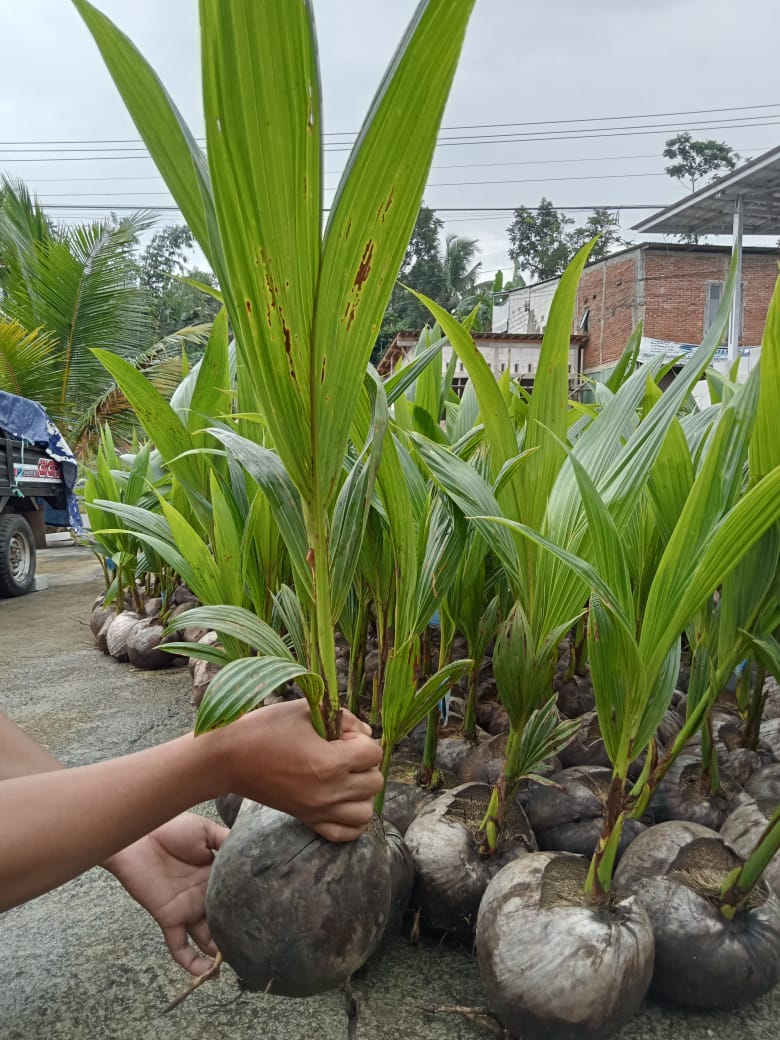
The initiatives have been yielding a multitude of positive outcomes that bring significant advancements in various aspects. These are as follows-
- The cooperative’s members have been experiencing an increase in their living income through product diversification, achieved by cultivating and selling avocados and nutmegs. This diversification strategy has provided supplementary short to mid-term benefits.
- The quality of the organic coconut sugar has been enhanced by incorporating powder derived from the mangosteen’s shell as one of the cooking ingredients. This measure ensures the production of high-quality coconut sugar and offers short to mid-term advantages.
- The successful cultivation of Kelapa Genjah Entog Kebumen, a shorter variant of coconut sugar, will present a promising development in the mid-term. This achievement contributes to a safer working environment for coconut sugar artisans, as the shorter trees reduce the risks associated with climbing. This improvement allows for the increased participation of women and youth in coconut sap tapping, fostering inclusivity in the industry.
The comprehensive efforts have paved the way for increased productivity and the overall betterment of the coconut sugar sector. The combination of product diversification, quality enhancement, the cultivation of specific coconut variants, and the provision of improved working conditions have all contributed to the sector’s sustainability and long-term success. Notably, the inclusivity achieved in coconut sap collection has played a pivotal role in ensuring the continued sustainability of coconut sugar production. These endeavours collectively form a strong foundation for a thriving and resilient coconut sugar industry.
Testimonial:
“We are grateful for this opportunity of planting a new variety of coconut plant, although we can only see the results three years from now, since the planting of the Kelapa Genjah Entog Kebumen (the shorter variant of the coconut tree) in January 2023, we can see that the progress of growth is great, whether those were planted at our 4 locations of demonstration plots and the individual lands of our farmers. The trees now are already having 5 to 6 leaves, from 1-2 leaves when they were planted as seedlings 4 months ago. The farmers are enthusiastic and understand that this is a necessary innovative effort to sustain the practice of coconut sugar production in the long term, by having a shorter variety of coconut plants as the source of coconut sap. They are eagerly looking forward to the results and hoping for a similar program to happen in the future. The farmers feel much supported.
The mangosteen plants, avocado plants and nutmeg plants are also growing well. By having their own mangosteen trees, the farmers can create their own organic coconut sugar cooking ingredient, made from the dried shell of mangosteen. Avocados and nutmeg are planned to be additional sources of income for the farmers.” – Chairman Susanto and the secretary of the SPO, Subanul Arif.
